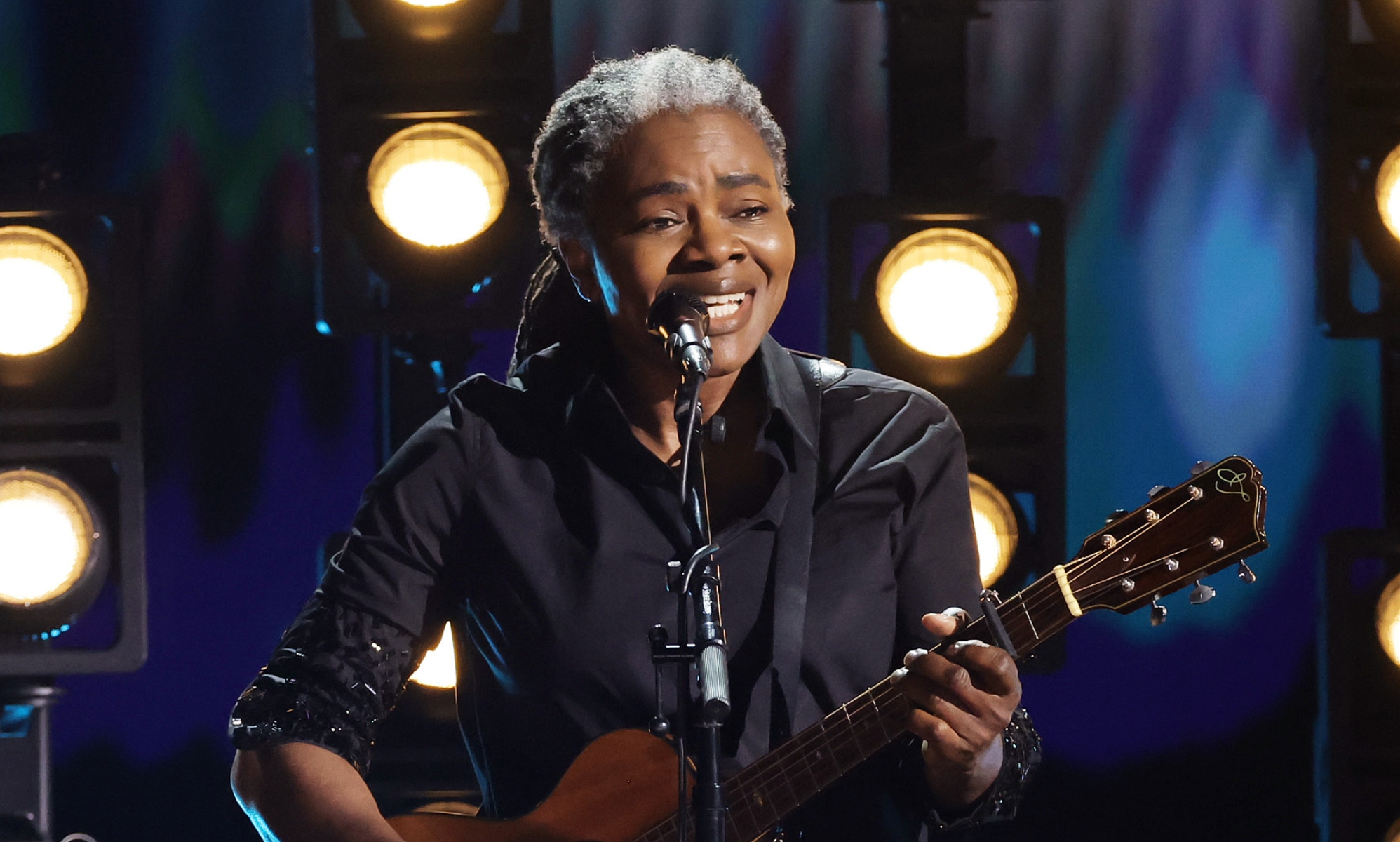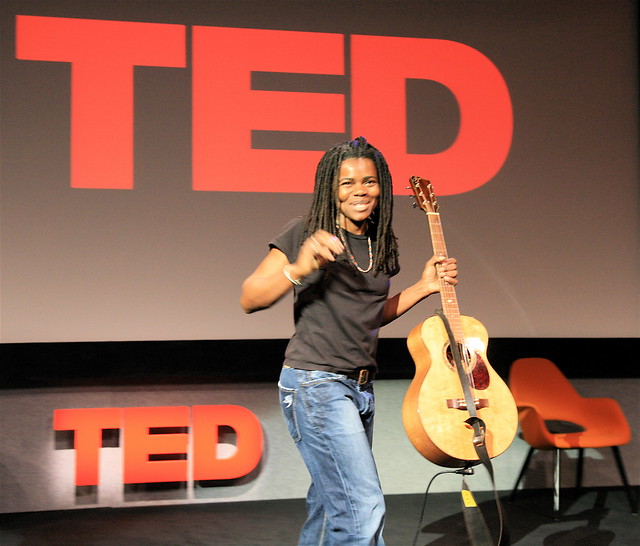Alice Walker & Tracy Chapman: Unveiling A Secret Romance & Legacy!
In a world obsessed with labels, does silence speak louder than any proclamation? Tracy Chapman's resolute privacy regarding her sexual orientation has only amplified the public's fascination, turning her into an enigma wrapped in powerful lyrics and soulful melodies.
The question of Tracy Chapman's sexuality has long been a subject of speculation, fueled by her intensely private nature and the deeply personal themes explored in her music. While the celebrated singer-songwriter has never explicitly addressed her sexual orientation, her name has been linked to Alice Walker, the acclaimed author of "The Color Purple," who is openly bisexual. Walker herself has spoken about her relationship with Chapman, adding another layer to the ongoing discussion. Despite the public's curiosity, Chapman has consistently maintained a boundary, choosing to let her art speak for itself.
Alice Walker, best known for her Pulitzer Prize-winning novel, "The Color Purple," has been open about her relationships with both men and women. Her candor stands in contrast to Chapman's reticence, creating a dichotomy that further piques interest in the singer's personal life. The reported relationship between Walker and Chapman, said to have occurred in the 1990s when Walker was in her 20s, has become a focal point in discussions about Chapman's sexuality. However, it's crucial to note that Chapman has never confirmed these reports, leaving the public to rely on speculation and secondhand accounts.
Chapman's rise to fame began in 1987 when she was signed to Elektra Records by Bob Krasnow. Her self-titled debut album, released the following year, catapulted her into the spotlight, earning her critical acclaim and commercial success. Songs like "Fast Car" and "Give Me One Reason" became instant classics, resonating with audiences across the globe. Her performance at Nelson Mandela's 70th birthday tribute concert at Wembley Stadium in June 1988 further solidified her status as a major artist. Despite her growing fame, Chapman remained fiercely protective of her privacy, rarely granting interviews or discussing her personal life.
The narrative thrust of Tracy Chapman's music has resonated deeply with listeners, offering a lens through which to process complex emotions and social issues. Her songs have given voice to marginalized communities, including black lesbians and others who often feel unseen and unheard. This connection to the LGBTQ+ community has further fueled speculation about her own sexuality, as many fans have found solace and inspiration in her music. However, Chapman has never explicitly identified as a member of the LGBTQ+ community, choosing to let her work speak for itself.
Despite the lack of explicit confirmation, many have interpreted Chapman's silence as a tacit acknowledgment of her queerness. The "general consensus" among fans and observers is that Chapman is a lesbian, based on her relationship history and the themes explored in her music. However, it's important to respect Chapman's decision to keep her personal life private. As one article noted, Chapman "never pretended to be anything other than the queer black woman she was," suggesting that her identity is evident in her work and public persona, even without a formal announcement. Tracy Chapman's stance on the issue of sexuality may simply be hers to keep.
- Filmyfly South Indian Movies Whats New Where To Watch
- Ai Undress Tools Privacy Risks Best Cloth Remover Options
The legacy of "Fast Car" extends beyond its musical merits, offering a poignant commentary on the American Dream and the struggles of those who are often left behind. The song's narrative, which tells the story of a woman trapped in a cycle of poverty and hardship, resonates with many who feel disillusioned by the promise of upward mobility. Chapman's ability to capture the complexities of human experience has made her a voice for a generation, and her music continues to inspire and uplift those who feel marginalized.
In contrast to those who actively seek the spotlight, Chapman has remained a reluctant participant in the celebrity culture. She has resisted the urge to overshare, preferring to let her music speak for itself. This commitment to privacy has only added to her mystique, making her an even more compelling figure in the public eye. While other artists have embraced social media and reality television, Chapman has remained steadfast in her dedication to her craft, focusing on creating meaningful and impactful music.
Even as country star Luke Combs recently released his version of "Fast Car," Chapman remains an elusive figure, her personal life shrouded in secrecy. The renewed attention on her music has only intensified the public's interest in her, but she has remained steadfast in her commitment to privacy. Despite the constant speculation and rumors, Chapman has never wavered in her decision to keep her personal life separate from her public persona.
The rumors surrounding Tracy Chapman's sexuality have persisted throughout her career, fueled by her private nature and the lack of explicit confirmation. Some have pointed to her style even a Tracy Chapman beard was suggested as a signal as evidence of her queerness. However, these interpretations are subjective and should not be taken as definitive proof. Ultimately, Chapman's sexuality is her own to define, and she has the right to share or withhold that information as she sees fit.
Despite the lack of clarity surrounding her personal life, Tracy Chapman's impact on music and culture is undeniable. She has inspired countless artists and fans with her powerful lyrics, soulful voice, and unwavering commitment to social justice. Her music has given voice to marginalized communities and challenged societal norms, making her a true icon of her generation. Whether she chooses to speak openly about her sexuality or not, her legacy as a groundbreaking artist and activist will endure.
In 1988, one Newsweek article noted the "flood of comparisons" to Tracy Chapman she's gotten, highlighting the impact she had on the music scene, after she released her 1988 debut. Her work helped many to say what they hadn't yet said out loud.
Ultimately, the question of Tracy Chapman's sexuality remains unanswered. She has never confirmed or denied the rumors, choosing to keep her personal life private. Whether she is gay, straight, bisexual, or something else entirely is ultimately her own business. What matters most is her music, which continues to inspire and uplift listeners around the world. Her songs offer a message of hope, resilience, and social justice, reminding us of the power of art to change the world.
Despite intense media scrutiny and public curiosity, Chapman has successfully maintained control over her narrative, refusing to be defined by her sexuality or any other label. She has consistently prioritized her music and her message, using her platform to advocate for social justice and equality. Her commitment to privacy is a testament to her strength and independence, and it serves as a reminder that we should respect individuals' right to define themselves on their own terms.
Tracy Chapman's career has been marked by both critical acclaim and commercial success. Her albums have sold millions of copies worldwide, and she has won numerous awards, including four Grammy Awards. Her music has been featured in films and television shows, and she has toured extensively throughout her career. Despite her success, she has remained grounded and committed to her values, using her platform to speak out against injustice and inequality.
She caught the worlds attention in June 1988 when she performed at Nelson Mandela's 70th birthday tribute concert at Wembley Stadium, London. Tracy Chapman is an African American artist known for hit songs like baby can I hold you, Crossroads, New Beginning, and many other songs. She is a highly acclaimed artist who recently celebrated her 57th birthday on March 30, 2021.
In conclusion, while the public may never know the full details of Tracy Chapman's personal life, her impact on music and culture is undeniable. She has inspired generations of artists and fans with her powerful lyrics, soulful voice, and unwavering commitment to social justice. Her music has given voice to marginalized communities and challenged societal norms, making her a true icon of her time. Whether she chooses to speak openly about her sexuality or not, her legacy as a groundbreaking artist and activist will endure.
- Ai Clothes Remover Tools Apps What You Need To Know
- Breaking Cho Seung Woo New Drama His Wife Revealed

Tracy Chapman sang her lesbian anthem 'Fast Car' at Grammys

Tracy Chapman On Her Lesbian Anthem 'Fast Car' Becoming A Country Hit

How Tracy Chapman's 'Fast Car' became a lesbian anthem INTO